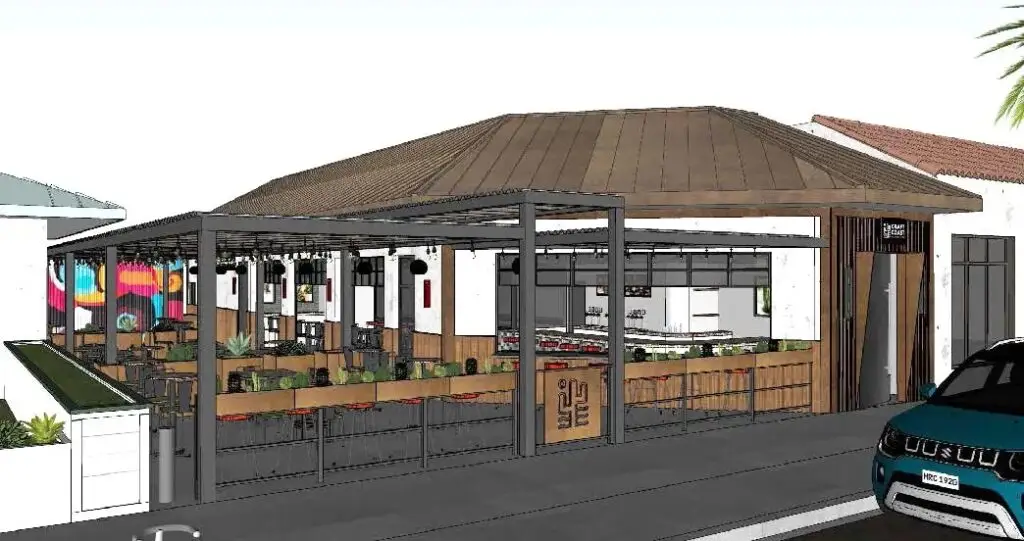One of two remaining candidates—Barbara Bry or Todd Gloria—will be named mayor of San Diego after the runoff election on November 3. For this series, I spoke with both of them about the local restaurant industry. I asked restaurants of all shapes and sizes to send me their most burning questions for their city’s next leader, and passed them along. What follows is the background context for the questions, followed by their answers.
California minimum wage is currently $12/hour. It will rise a dollar each successive year until it hits $15 in 2023. The next dollar raise hits restaurant payrolls January 1 ($13/hour).
No one wants to talk about it. If a business owner brings up the possibility of pausing its raises until the financial strain of the pandemic subsides, they are cast as the heartless thumb squashing the working class in their most dire hour.
Sure, there are callous restaurant owners who want to maximize their own profits on the undercompensated backs of workers. But there are also many good restaurant owners who want to pay their employees as much as the business model will allow. Fact is, a majority of restaurants are barely staying afloat financially during COVID-19 due to the forced closures of indoor dining, reduced capacity for social distancing, and other restrictions. Data on the number of restaurants that have permanently closed due to the pandemic is scant, though Yelp reported in late July that it’s at least 16,000 across the US and climbing. Multiple restaurant owners I spoke with said January’s additional hit to payroll will be the thing that forces many more to shutter for good.
The question is: How do we make sure restaurant employees earn a living wage while also making sure they don’t lose their jobs permanently because the raise forces their restaurants to close? It’s byzantine stuff above my basic-economics college training. All I could do was ask San Diego’s mayoral candidates; their full answers are below.
Some owners I spoke with expressed hope that the state would briefly pause the increase of minimum wage until they’re allowed to operate at full capacity again, and have at least partially recovered from the financial hit of the closures. Many restaurants (not all) are unique in that their employees also earn money in tips, which in some cases pushes their hourly earnings above $15. But California is one of six states that doesn’t allow business owners to count tips as earnings.
When California’s then-governor Jerry Brown signed the increases into law, he set up “offramps”—meaning that if the state’s economy tanked badly enough, lawmakers could pause them until it recovered. Restaurateurs feel we’ve reached the threshold for those offramps. The economy is in a swan dive, and restaurants have been forced to shoulder much of the financial burden. If there was ever a time to hit pause, they argue—or at least reconsider allowing tips to count as earnings—it is now.
Low-wage workers are our most at-risk population during this economic crisis. The concentration of wealth at the top of the country’s earners has only increased during the pandemic. We need to ensure everyone is making enough to pay their rent and health insurance and survive. But if that additional hit to payroll puts more restaurants out of business, these employees won’t have a job to return to.
It was easier before the pandemic to say, “Well, if you can’t pay your employees $15/hour, then there’s something flawed with your business model.” But now the forced closures of indoor dining and social distancing in outdoor spaces has taken a large lead as the biggest problem.
Should California keep raising minimum wage but allow tips to count as earnings, at least for a temporary amount of pandemic time? Should we not ask low-income earners to shoulder the financial burden at all, and instead ask the federal government to help restaurants financially (the Restaurants Act is currently before Congress, asking for $120 billion to help the industry)?
I posed the question to San Diego’s mayoral candidates. To be clear: Minimum wage is a state issue. City mayors can’t set it. But they can lobby the state. On July 29, Governor Gavin Newsom said the minimum wage increase will not be paused. But some analysts predict this will still be an issue next year, since it will take years for the economy to recover. So all mayors’ perspective on this does matter.
PARTNER CONTENT
BARBARA BRY:
“As a private businesswoman, I did support the increase in minimum wage. Let’s see where we are in January. It’s very expensive to live in San Diego and California. Minimum wage is not necessarily a livable wage. But I’ve had to sign the front of the paycheck, so I understand the situation that restaurants are in. I think this is something we should revisit at that moment in time. [Regarding the idea of reconsidering tips as wages,] that only impacts a small portion of the restaurant industry. Most of the industry is working in fast food and other kinds of restaurants where they do not get tips. It is the upper end where tipped employees do quite well. That is certainly now worth having a conversation about.
TODD GLORIA:
“I would not [support a pause on raising minimum wage.] I understand the issue, but it’s expensive to live in this town. Rent is outrageous. It costs a lot to make ends meet. That’s true for the business owners and that’s true for the workers. If the state didn’t proceed [with raising minimum wage,] we have a CPI in place here in San Diego that doesn’t have an offramp. But here’s the thing—it doesn’t have to be a zero-sum game. Let’s find other ways to make it better for these businesses that are struggling to the point of needing an offramp. This is a part of the regulatory relief around takeaway cocktails, right? We’re doing it because we know restaurants are suffering and we have to do something to help them. What are the other ways that we can do this that doesn’t mean that the workers have to lose? Is there regulatory relief at the city level? When I talk to a lot of restaurateurs, just the permitting process and the length that they must wait to open their business—that can harm their bottom line. So let’s figure out a way that the city could be a true partner and help these folks while sure that the lowest wage people in our community can actually, hopefully, make the rent. I think you’re going to see some of that at the state level, relative to tenancy and eviction moratoriums. We had eviction moratoriums in place, but we recognize mortgage holders are in trouble and they’re worried about making their payments. Well, the state may step into their shoes and help them with tax credits.”






















